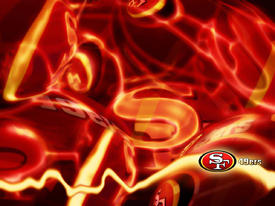We are pleased to announce that on March 4, 2025, an updated Rich Text Editor will be introduced in the MyFitnessPal Community. To learn more about the upcoming changes, please click here. We look forward to sharing this new feature with you!
Is body fat % important?

kmalacho
Posts: 16 Member
I got serious about weight loss right after Christmas and have successfully lost 6 pounds since then. I'm 5'0 and 135 pounds currently. My goal weight is 115. My question is this: how important is a body fat % measurement?
I can definitely understand the importance of getting one if I get down to 115 and am still not as fit or toned as I would like to be. But now, when I already know I still have weight to lose? If it makes a difference, my gym doesn't offer any free measurements, so I would likely shell out $100 to get a dexa scan or $75 for a Bod Pod scan at a local university.
I can definitely understand the importance of getting one if I get down to 115 and am still not as fit or toned as I would like to be. But now, when I already know I still have weight to lose? If it makes a difference, my gym doesn't offer any free measurements, so I would likely shell out $100 to get a dexa scan or $75 for a Bod Pod scan at a local university.
0
Replies
-
I'd say it's very important to watch your BF% when you're close to your goal, even if it's just by using measuring tape and the online calculators that help estimate it (just use the same method whenever you do it). And here's why. If you lose 20# in the next 6 months and it's all muscle, you will be less fit than you are right now. You want to make sure you're losing FAT. And the only way to tell is by measuring your BF% to make sure it's going down at a rate that shows that any scale weight you lose is actually fat.
Whatever method you use might be inaccurate, but at least it will give you an idea if your BF% is going down or up while losing weight.0 -
BF % > Weight on the scale, the weight on the scale is completely irrelevant.
But it also won't really give you anything you need to continue losing weight or eating healthy until you get down to a low BF%0 -
Definitely not worth doing such a scan if the price is any issue for you. Also, even if the cost isn't prohibitive, they are very inaccurate, so if you are like some people who will fixate on getting to a certain elusive %, really not worth the cost of starting down this path. Best way to insure a good percentage is to lift weights while slowly losing, and later and gradually try to increase your lifts while keeping your weight the same.0
-
If it's not a hit to your budget, the DEXA scan is great! I just had my second one about 6 weeks ago. I learned that I had dropped 16.1 pounds, of which 15 pounds of that was body fat. Great reinforcement for what I have been doing calorie and exercise wise with the heavy lifting.0
-
I'll clarify a bit more:
I do a mix of cardio and strength training, so I'd be surprised if the 20 pounds I hope to lose over the next are muscle. It will be some muscle, but mostly fat. I weigh myself twice a week to keep an eye on my weight so I stay on track. If a body scan costs $75-$100, I'm unlikely to get one more than once every 3-6 months, so I wouldn't use it as a frequent progress tool.
I'm wondering about their usefulness when I am focusing primarily on weight loss via cardio and strength training and still have a ways to go, as opposed to being at my goal weight and focusing on strength training to gain muscle and tone.0 -
I find I wasn't happy with how I looked until I started paying attention to body fat % instead of the scale. My scale really hasn't moved in over a year, but I'm two sizes smaller. Body recomposition is a MUCH longer process, and you really have to get over the scale being any sort of accurate measurement tool, but for me it works long term (I was able to bounce back from gaining weight from having 4-500 cals/day for the week of Christmas/New Years within a week this year as opposed to a month or more). Also, for $25 more, I would go for the DXA scan. You're lucky - there's a price difference of almost $100 where I'm at!!0
-
Tape measures cost less than $1. Use something like this just to create a baseline http://www.healthstatus.com/calculate/body-fat-percentage-calculator
Then redo it once a month. It costs less than $1.
I'm not saying you aren't working out the right way. I'm just saying getting a chart for your BF% is a great way to make SURE you're losing fat, not muscle, bone and other tissue.0 -
You don't have to pay for body fat measurement. They would probably do it on the scales anyways and that's very inaccurate. I figure mine out by my measurements here:
http://usmilitary.about.com/library/milinfo/blbodyfatfemale2.htm
To me BF is important. For example, if I now lose 20 pounds and end up being 120, but around 25% fat, it would be very difficult for me to get rid of the fat then, because I have lost too much muscle during my weight loss, and muscle is the main driving factor in my BMR. So by dieting away the muscle and not doing enough about BF%, I have now ended up with slower metabolism, I will have to build muscle (which for a woman is very difficult and slow and time consuming process) and then diet again to lose the bodyfat, since it's nearly impossible to lose fat and gain muscle at the same time. Or I would have to do a body recomposition on maintenance, which could take years. Not fun.
But if I diet smartly with good protein ratio (1g/lb of lean body mass) and do resistance training a few times a week to retain the muscles I have, I will be losing mostly fat, and when I reach 120, I will be lean as they come with not a worry in the world.
A bit oversimplified, but you get the hang of it...0 -
Of course a DXA scan isn't a frequent tool to use. But a check every 3-6 months, or after 20 pounds +/- lost would be good times to check your progress. A mix of cardio and strength is good. Are you lifting heavy? Personally, I put lifting as my primary and do cardio after or on one of my weekend days and that has worked very well for me.0
-
I'm as tall and heavy as Vin Diesel is, I have about 24% body fat assuming my scale isn't too far off. He can lift heavier weights than me, his body looks far better than mine. I'd say body fat % is the one important measurement. That doesn't mean it's necessary to measure it frequently, since working out a lot + loosing weight slowly (small deficit) + eating lots of protein usually means substituting fat with muscle (not 1:1).
ps: These pics impress me everytime, assuming they are correct of course.
http://www.builtlean.com/2012/09/24/body-fat-percentage-men-women/0 -
^This. It's important, but it doesn't have to be exact. You're more looking for a downward trend. The online calculators aren't accurate, but every method of measuring BF% has its problems. Don't waste the money if you don't have it to spend, but track your progress with pictures and tape measure. When measuring, be sure to take as accurate of measurements as possible (similar tension on the tape measure in the same spots) and use those in the online calculators. It'll be good enough to ensure you're losing mostly fat.Tape measures cost less than $1. Use something like this just to create a baseline http://www.healthstatus.com/calculate/body-fat-percentage-calculator
Then redo it once a month. It costs less than $1.
I'm not saying you aren't working out the right way. I'm just saying getting a chart for your BF% is a great way to make SURE you're losing fat, not muscle, bone and other tissue.0 -
BF% is much more important than scale weight or BMI.
BF% doesn't discriminate on how much muscle a person has, how tall they are, or what kind of frame they sport.
In other words, BF% will tell you the truth about risks to your health. Too high or too low a BF% will increase risks geometrically.
A.C.E. Certified Personal and Group Fitness Trainer
IDEA Fitness member
Kickboxing Certified Instructor
Been in fitness industry for 30 years and have studied kinesiology and nutrition0
This discussion has been closed.
Categories
- All Categories
- 1.4M Health, Wellness and Goals
- 394.3K Introduce Yourself
- 43.9K Getting Started
- 260.4K Health and Weight Loss
- 176.1K Food and Nutrition
- 47.5K Recipes
- 232.7K Fitness and Exercise
- 440 Sleep, Mindfulness and Overall Wellness
- 6.5K Goal: Maintaining Weight
- 8.6K Goal: Gaining Weight and Body Building
- 153.1K Motivation and Support
- 8.1K Challenges
- 1.3K Debate Club
- 96.4K Chit-Chat
- 2.5K Fun and Games
- 4K MyFitnessPal Information
- 16 News and Announcements
- 1.2K Feature Suggestions and Ideas
- 2.7K MyFitnessPal Tech Support Questions








